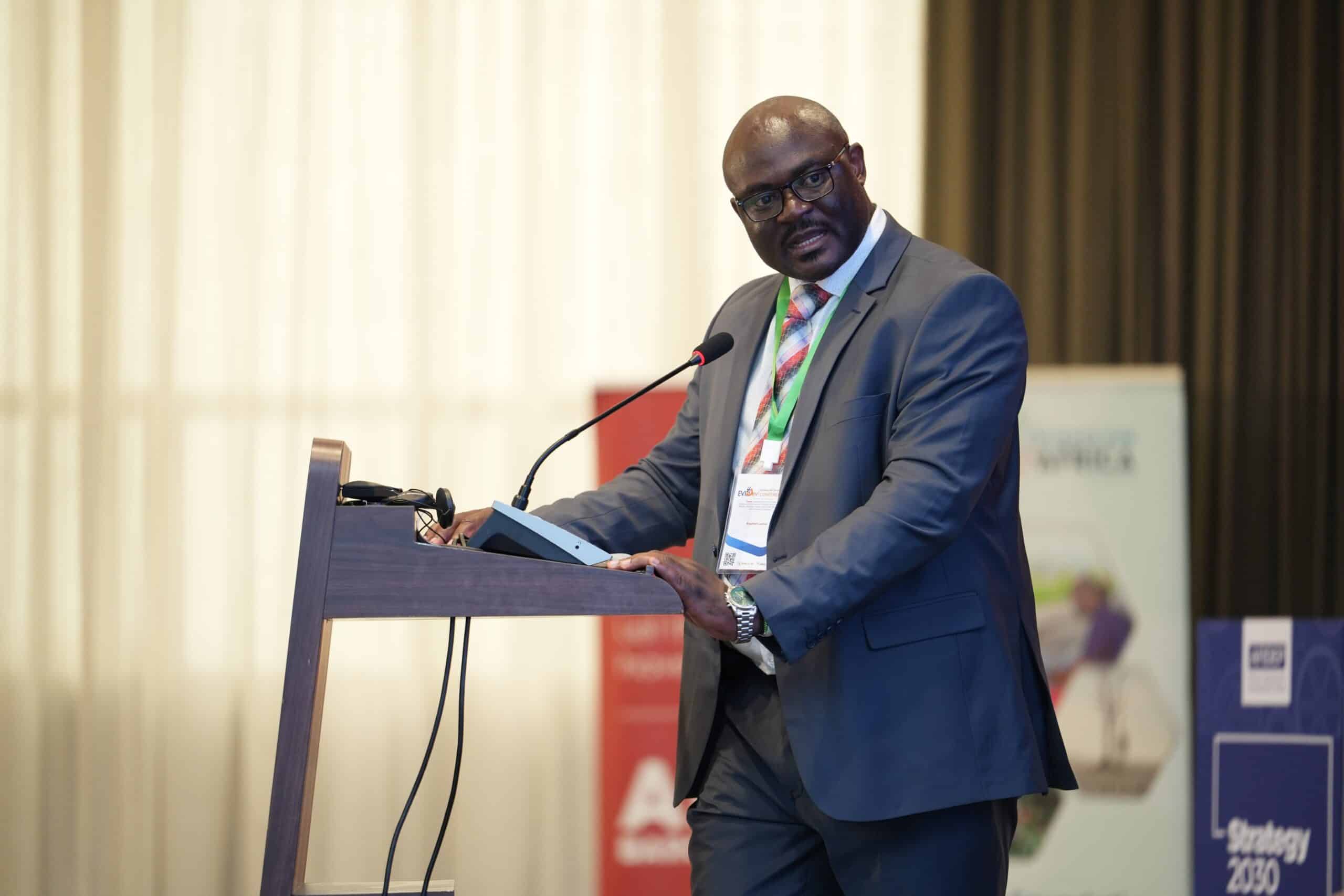๐ง๐ฟ๐ฎ๐ถ๐ป ๐๐ฒ๐ฎ๐น๐๐ต ๐ฃ๐ผ๐น๐ถ๐๐ถ๐ฐ๐ถ๐ฎ๐ป๐, ๐ก๐ผ๐ ๐๐๐๐ ๐ฆ๐ฝ๐ฒ๐ฐ๐ถ๐ฎ๐น๐ถ๐๐๐ ๐ผ๐ฟ ๐ง๐ฒ๐ฐ๐ต๐ป๐ถ๐ฐ๐ถ๐ฎ๐ป๐: ๐ ๐บ๐ฒ๐ฎ๐ป๐ถ๐ป๐ด๐ณ๐๐น ๐๐๐๐๐ฟ๐ฒ ๐ณ๐ผ๐ฟ ๐๐น๐ผ๐ฏ๐ฎ๐น ๐ฃ๐๐ฏ๐น๐ถ๐ฐ ๐๐ฒ๐ฎ๐น๐๐ต ๐๐ฒ๐ฝ๐ฒ๐ป๐ฑ๐ ๐ผ๐ป ๐๐ต๐ฒ๐บ
- Home
- Blogs
- Posts
- ๐ง๐ฟ๐ฎ๐ถ๐ป ๐๐ฒ๐ฎ๐น๐๐ต ๐ฃ๐ผ๐น๐ถ๐๐ถ๐ฐ๐ถ๐ฎ๐ป๐, ๐ก๐ผ๐ ๐๐๐๐ ๐ฆ๐ฝ๐ฒ๐ฐ๐ถ๐ฎ๐น๐ถ๐๐๐ ๐ผ๐ฟ ๐ง๐ฒ๐ฐ๐ต๐ป๐ถ๐ฐ๐ถ๐ฎ๐ป๐: ๐ ๐บ๐ฒ๐ฎ๐ป๐ถ๐ป๐ด๐ณ๐๐น ๐๐๐๐๐ฟ๐ฒ ๐ณ๐ผ๐ฟ ๐๐น๐ผ๐ฏ๐ฎ๐น ๐ฃ๐๐ฏ๐น๐ถ๐ฐ ๐๐ฒ๐ฎ๐น๐๐ต ๐๐ฒ๐ฝ๐ฒ๐ป๐ฑ๐ ๐ผ๐ป ๐๐ต๐ฒ๐บ

๐ง๐ฟ๐ฎ๐ถ๐ป ๐๐ฒ๐ฎ๐น๐๐ต ๐ฃ๐ผ๐น๐ถ๐๐ถ๐ฐ๐ถ๐ฎ๐ป๐, ๐ก๐ผ๐ ๐๐๐๐ ๐ฆ๐ฝ๐ฒ๐ฐ๐ถ๐ฎ๐น๐ถ๐๐๐ ๐ผ๐ฟ ๐ง๐ฒ๐ฐ๐ต๐ป๐ถ๐ฐ๐ถ๐ฎ๐ป๐: ๐ ๐บ๐ฒ๐ฎ๐ป๐ถ๐ป๐ด๐ณ๐๐น ๐๐๐๐๐ฟ๐ฒ ๐ณ๐ผ๐ฟ ๐๐น๐ผ๐ฏ๐ฎ๐น ๐ฃ๐๐ฏ๐น๐ถ๐ฐ ๐๐ฒ๐ฎ๐น๐๐ต ๐๐ฒ๐ฝ๐ฒ๐ป๐ฑ๐ ๐ผ๐ป ๐๐ต๐ฒ๐บ
Luchuo Engelbert Bain, MD, PhD
Public health, global health, and health policy are fundamentally politicalโyet global health scholarship too often tends to either simply marinate the political dimensions of these fields, or treats them as apolitical technical fields. This framing neglects the decisive role of power, ideology, partisanship, and political systems in shaping health outcomes.
The COVID-19 pandemic, anti-science movements, debates on soda and tobacco taxes, and the unequal global vaccine rollout underscore how politicsโnot evidenceโdrives decisions.
Indeed, the absence of critical political science theory, core political science education in health-related disciplines, and active involvement of political scientists in global public health discourse is disturbing, and weakens its impact and credibility. We must stop cloaking health in neutral language and instead name it for what it is: Health Politics or the Politics of Health.
๐ช๐ต๐ย ๐ต๐ฒ๐ฎ๐น๐๐ต ๐ฝ๐ผ๐น๐ถ๐ฐ๐ ๐บ๐๐๐ ๐ฏ๐ฒ ๐๐ถ๐ฒ๐๐ฒ๐ฑ ๐๐ต๐ฟ๐ผ๐๐ด๐ต ๐ฎ ๐ฝ๐ผ๐น๐ถ๐๐ถ๐ฐ๐ฎ๐น ๐น๐ฒ๐ป๐
1. Politics turns knowledge into action โ Scientific evidence alone cannot implement change; politics determines whether, how, and when evidence is acted upon
2. Policy decisions reflect competing interests โ Public health goals often clash with economic or political agendas, requiring negotiation and power analysis
3. Health policy is shaped by institutions โ Political structures, partisanship, and bureaucratic norms influence what policies are feasible or prioritized
4. Training ignores politics โ Most public health curricula fail to equip students with the skills to engage meaningfully in political processes, leaving practitioners underprepared
5. Theories of policy-making are underused โ Despite robust political science frameworks, few public health scholars apply these to study or influence policy effectively
Global public health must embrace political literacy as a core competency. Without political analysis, advocacy is ineffective, scholarship disconnected, and interventions unsustainable. Reframing public health as inherently political empowers future leaders to navigate power, build coalitions, and drive structural change toward equity, justice, and lasting health impact.
The COVID-19 pandemic, anti-science movements, debates on soda and tobacco taxes, and the unequal global vaccine rollout underscore how politicsโnot evidenceโdrives decisions.
Indeed, the absence of critical political science theory, core political science education in health-related disciplines, and active involvement of political scientists in global public health discourse is disturbing, and weakens its impact and credibility. We must stop cloaking health in neutral language and instead name it for what it is: Health Politics or the Politics of Health.
๐ช๐ต๐ย ๐ต๐ฒ๐ฎ๐น๐๐ต ๐ฝ๐ผ๐น๐ถ๐ฐ๐ ๐บ๐๐๐ ๐ฏ๐ฒ ๐๐ถ๐ฒ๐๐ฒ๐ฑ ๐๐ต๐ฟ๐ผ๐๐ด๐ต ๐ฎ ๐ฝ๐ผ๐น๐ถ๐๐ถ๐ฐ๐ฎ๐น ๐น๐ฒ๐ป๐
1. Politics turns knowledge into action โ Scientific evidence alone cannot implement change; politics determines whether, how, and when evidence is acted upon
2. Policy decisions reflect competing interests โ Public health goals often clash with economic or political agendas, requiring negotiation and power analysis
3. Health policy is shaped by institutions โ Political structures, partisanship, and bureaucratic norms influence what policies are feasible or prioritized
4. Training ignores politics โ Most public health curricula fail to equip students with the skills to engage meaningfully in political processes, leaving practitioners underprepared
5. Theories of policy-making are underused โ Despite robust political science frameworks, few public health scholars apply these to study or influence policy effectively
Global public health must embrace political literacy as a core competency. Without political analysis, advocacy is ineffective, scholarship disconnected, and interventions unsustainable. Reframing public health as inherently political empowers future leaders to navigate power, build coalitions, and drive structural change toward equity, justice, and lasting health impact.
Categories
Recent Post
Tags
Africa
Buzzwords
Collaboration
Colonialism
contraceptive
Decolonizing
Decolonizing science
Discipline
EQUITY
Family Nigeria
Fatherhood
Fathership
FUNDING AGENCIES
Global Health
Health disparities
health policy
HIV
HIV stigma
HIV/AIDS
Infectious diseases
Leadership
Maternal health
Men who have sex with men
Mentorship
NCDs
Non Communicable Diseases
Oncology
Peer Review
Public health
Women and girls





